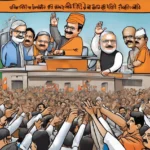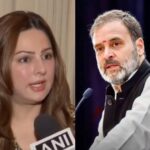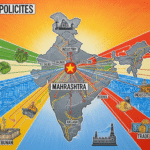In today’s digital age, the level of political awareness among youth is a topic of significant interest and importance, particularly in India where the demographic bulge leans heavily towards those under 35, as noted in the Census of India, 2011. With a vibrant democratic fabric, India’s future hinges largely on how informed its next generation is about politics. This raises a crucial question: How aware and engaged are young Indians in the political process?
The Rise of Digital Platforms Enhancing Awareness
The digital revolution has profoundly impacted how young people consume information and engage with political content. Platforms like Twitter, Instagram, and Facebook are not just tools for social interaction but have become key avenues for political engagement and education. The government’s Digital India initiative has further accelerated this trend, aiming to provide digital access to all citizens and encouraging an informed and connected electorate.
Moreover, the proliferation of online news outlets and the accessibility of governmental portals have made it easier than ever for young people to stay informed about political developments, policies, and debates. The Ministry of Electronics and Information Technology (MeitY) reports an increase in the usage of apps and websites designed for tracking government initiatives and parliamentary proceedings, suggesting a more proactive approach to political education among the youth.
Educational Institutions as Catalysts
Schools and universities play a pivotal role in cultivating political awareness. The integration of civic education into curricula, as reinforced by policies like the National Education Policy (NEP) 2020, has begun to reshape how young Indians understand their political system and their role within it. Educational initiatives such as debates, model United Nations (MUNs), and youth parliaments further simulate real-world political engagement, providing students with firsthand experience in governance and policy-making.
Youth Movements and Political Activism
Recent years have seen a surge in youth-led movements in India that speak volumes about the political engagement of the next generation. Movements fighting for climate change awareness, gender equality, and educational reforms have not only demonstrated the capacity of young Indians to mobilize and advocate but also their ability to influence policy and public opinion. These movements underscore an emerging trend where young people are not just passive consumers of political information but active participants in the democratic process.
Challenges to Deeper Political Engagement
Despite these positive trends, there are challenges that dampen the extent of political awareness among the youth. One major issue is the prevalence of misinformation and biased information online, which can skew young people’s understanding of political realities. Additionally, the educational system’s focus on rote learning rather than critical thinking and analytical skills can limit the ability of young individuals to fully comprehend complex political issues.
The Role of Non-Governmental Organizations (NGOs)
NGOs play an instrumental role in bridging the gap between formal education and practical political engagement. Organizations dedicated to youth development often conduct workshops, seminars, and community outreach programs that provide young people with the tools and knowledge necessary to engage effectively in politics. These initiatives complement formal education and help cultivate a generation that is not only informed but also motivated to participate in governance.
Conclusion: A Promising Yet Cautious Outlook
The next generation of Indian youth shows promising signs of being well-informed and actively engaged in political discourse. However, ensuring that this awareness is balanced, accurate, and constructive is crucial. Continued investment in digital literacy, education reform, and civic engagement programs will be key to nurturing an informed electorate ready to take on the challenges of tomorrow’s political landscape.
As India continues to harness its demographic dividend, the focus must not only be on how many young people are aware of politics but also on the quality and depth of their understanding. With the right tools and opportunities, India’s youth can potentially lead the way in fostering a more informed, engaged, and vibrant democratic society.








